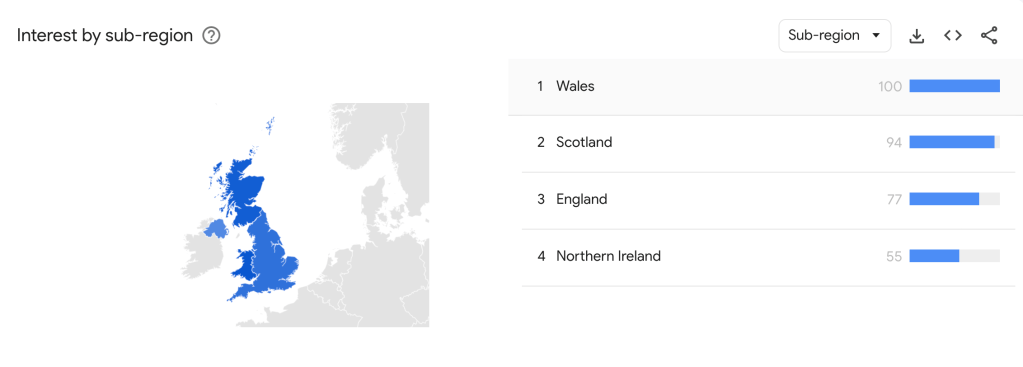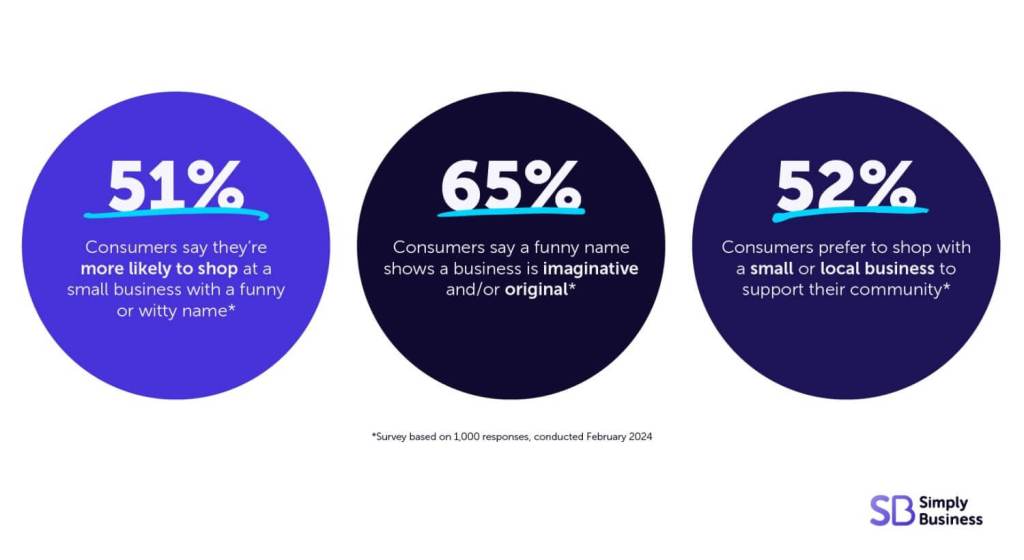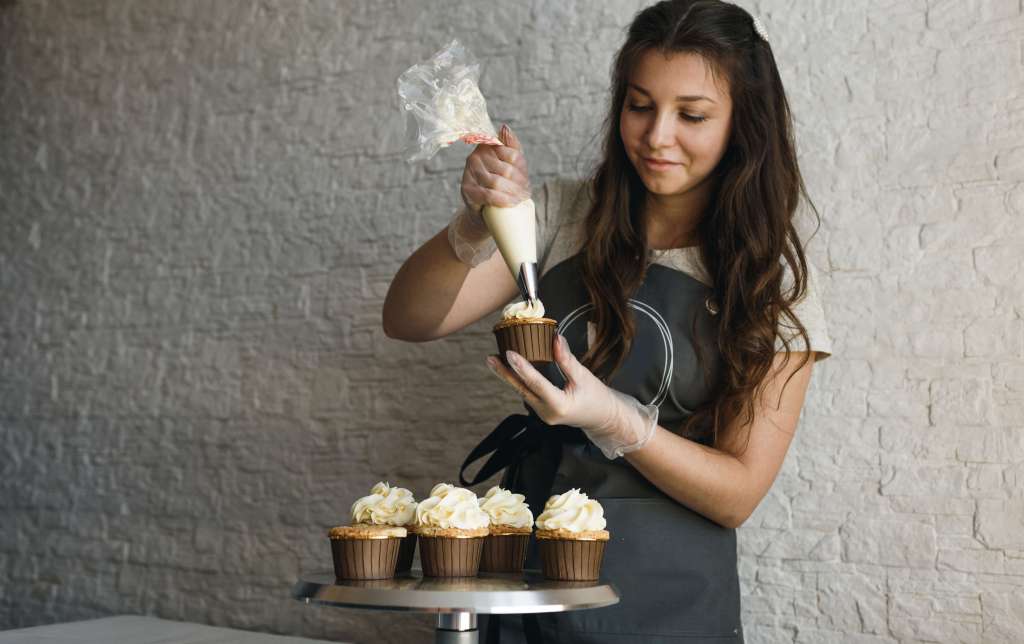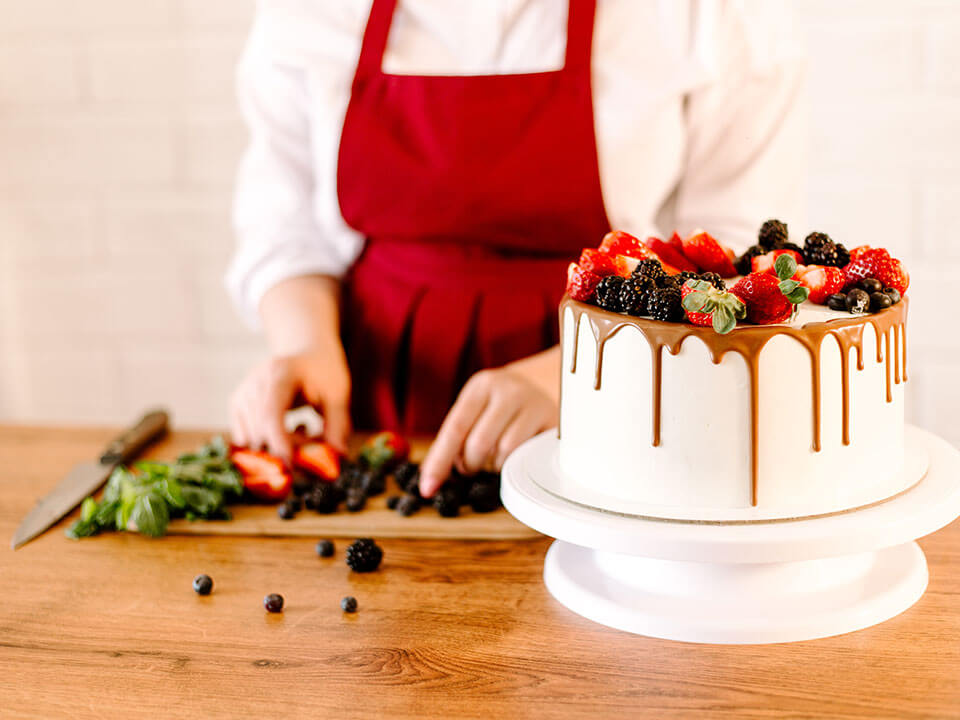Skilled in the kitchen and looking to share your delicious treats with the world? While this guide won’t help you become a better baker, we can share the recipe for creating a successful home baking business.
From getting to grips with baking from home regulations in the UK to actually selling your cakes from home, here’s what you need to know.
How to start a home bakery business
- Identify a gap in the market and find your niche – this can be a specific baked good or catering to one dietary requirement
- Register as self-employed – let HMRC know you’re trading and set up as either a sole trader or a limited company
- Check the legal requirements to sell cakes from home – read up on allergen labelling and prepare for a mandatory inspection from your local authority
- Register your premises – you’ll need to do this at least 28 days before you start trading
- Get the right insurance – this can help protect your business if there’s an accident, so you can focus on baking
- Let your landlord or mortgage lender know – you may need permission to run a business from your home
- Explore social media marketing opportunities – baking is a visual art, so how can you use TikTok and Instagram to market your business?
- Don’t neglect local offline marketing – can you network with other businesses to reach potential customers?
- Start a bookkeeping system – keeping track of your finances early on can help you when it’s time to file a tax return
Starting a home bakery business in 9 steps
1. Find your baking niche
There’s a large number of baking businesses out there, so you need to think about how you’re going to differentiate yourself. You could specialise in vegan or gluten-free bakes, for instance, or concentrate on children’s party cupcakes or wedding cakes.
Try to identify a gap in the market to see what could prove popular in your area. Or if you want to sell nationwide, you could look for gaps elsewhere. Pay attention to social media to see if there are any trends you could jump on.
For example, searching Google Trends for ‘cronut’ reveals it’s a popular search term in Wales. Could your business offer home delivered letterbox cronuts?

2. Register as self-employed
When you’re starting your home baking business, you need to tell HMRC you’re self-employed so that they know you need to pay tax through the Self Assessment system. You need to do this even if you’re going to be running your home baking business as a side hustle, part-time or if you have another job.
To set up as a sole trader – the simplest business structure – telling HMRC is all you need to do to register your business. If you want to set up as a limited company instead, the process is a bit more complicated. See our step-by-step guide to setting up a limited company for more information.
If you’re setting up a limited company, one thing you can’t forget is coming up with a business name. Our data shows that the UK loves a funny business name – and luckily there are lots of delicious baking puns you can use for inspiration.

3. Follow selling cakes from home legal requirements in the UK
Complying with the rules can seem scary initially but they’re quite simple once you know what you’re doing.
First, you should think about getting a food hygiene certificate, namely a Level 2 hygiene certificate if you’re new to working with food. This is a good way to understand the rules you need to follow.
Home businesses are also subject to a food hygiene inspection, where you’ll be awarded a hygiene rating from one to five. Your local authority will arrange to visit your home after you’ve registered your business.
As an overview, your kitchen and premises need to be clean and kept in good condition. You need to be following good food hygiene practices in your kitchen, including cleaning and protection against contamination and pest control. However, your home baking business won’t be measured by the same standards as a big commercial premises like a restaurant.
Rules for food preparation areas
The Food Standards Agency lists food preparation regulations for different areas:
- floors and walls – should be in good condition, well-maintained, disinfected, and in a good state of repair
- ceilings – should be in good condition, easy to clean, and free from mould, condensation and flaking paint and plaster
- windows and doors – should be easy to clean and disinfect, and built so dirt can’t build up. There should be insect-proof screens that can be easily removed for cleaning
- facilities for cleaning equipment – you should have good facilities for cleaning, disinfecting and storing utensils, including equipment, with a supply of hot and cold water
- facilities for washing food – you need a sink for washing food and cleaning equipment, and a separate sink for washing hands (if you have a downstairs toilet, this should be fine as long as it’s not too far away – all of these facilities should be kept clean and disinfected)
Ideally you need a separate fridge for your personal food, but if this isn’t possible you should be clear about which foods are for your business and make sure there’s no cross-contamination.
Pets should be kept out of the kitchen and food preparation areas. Children shouldn’t be allowed in the kitchen while food is being prepared.
Allergens and food labelling
Finally, make sure you’re up to speed on food labelling regulations when it comes to giving allergen information.
The Food Standards Agency has lots of resources that you can use for your home baking business, including the Safer food, better business pack, which is based on hazard analysis and critical control point (HACCP) principles.
We also have a guide to health and safety for restaurants, catering and hospitality businesses, which might be useful for your cake business.

Photograph: Africa Studio/stock.adobe.com
4. Register your premises
Starting a cake business also means you need to register your premises with the local authority’s environmental health service. Make sure you do this at least 28 days before you start trading.
This doesn’t cost you anything and your registration can’t be refused. Someone will come to your home and check your food preparation area. To get contact details for your local authority, use the food business registration tool.
Keep in mind regulations we’ve listed in this article are a guide. It’s always best to get advice from your local environmental health authority if there’s anything you’re not sure about.
5. Sort your home baking insurance
It’s important to think about business insurance when you’re setting up your baking business. Public liability insurance and product liability insurance (usually sold together) can cover you if you’re sued by a member of the public for injury or damage.
For example, you might have a claim made against you if someone falls ill after eating one of your cakes, or if you knock over an expensive vase when you’re delivering a cake to a customer’s home.
There’s also stock insurance and tools insurance, plus employers’ liability insurance if your home baking business will have any employees. Go to our home baker insurance page to get started.
Butterwick Bakery, a sweet treat bakery business based in the Midlands, share their story of starting a bakery business in this video:
6. Tell your landlord or mortgage lender
If your home is rented, you need to get permission from your landlord to run your business. However, the law says that your landlord can’t unreasonably withhold or delay their permission. If you own your home, you may need to get permission from your mortgage lender to run your home-based baking business.

Photograph: Tatsiana/stock.adobe.com
7. Develop an online presence
You make a product that looks beautiful, so photographs are key. Make sure your goods look as delicious as they taste by following these principles of food photography.
Set up a simple website
Your website should include important details like what you do, where you’re based, and how people can place an order – and don’t forget to add plenty of mouth-watering photos.
There are lots of website builders to choose from, including WordPress, Squarespace and Wix.
If you want your customers to order directly from your website, make sure you set it up as an online shop.
Show up on Google through search engine optimisation
A Google Business Profile is an important part of any local advertising strategy. This means your business will appear in Google search and Google Maps when people are looking for cake businesses in their local area. If customers can’t visit your home to buy your cakes, you can hide your home address on your listing and still appear in the local area as a delivery business.
Using optimised keywords will also help people find you on Google. Use phrases like ‘vegan cakes in Hull’ or ‘gluten-free wedding cakes in Brighton’ to help boost your visibility.
Share content on social
Don’t underestimate the value of social media advertising. Setting up accounts on TikTok and Instagram can help you to reach a wider audience and make more sales.
Consider posting behind the scenes or day in the life of a baker videos – as well as posing pictures of your finished products. You could even record video tutorials and share your recipes online.
This is a great way to establish yourself as a baking authority while also creating an additional revenue channel for your business.
You could even consider selling your cakes on Instagram.
Another idea could be to record video tutorials and baking tips and publish them on YouTube or TikTok. Or why not publish your recipes as a cookbook and promote them on Instagram? This is a great way to establish yourself as a baking authority while also creating a new revenue channel for your business.
8. Get out and about with your baking business
Although you’re setting up your baking business from home, it’s a good idea to get out and tell people about your business and develop a reputation locally.
Consider applying for a stall at local events, including food markets and fetes. You can offer people free samples, sell cakes, and give out flyers and leaflets to promote your cake business.
9. Keep track of your ingoings and outgoings
Since you’re running your own business, you need to keep track of your income and your business expenses so that you can enter this information when you complete your tax return.
Our guide to tax-deductible expenses should help you figure out which expenses you can subtract. Remember that you need to keep your receipts as HMRC may ask you to produce evidence of your expenditure.
There’s lots of small business accounting software available that can help you to manage your business finances.
You’ll also want to use a budget calculator and choose the best business bank account, so you can keep your personal finances separate.
Get tips from an experienced baker and business owner
Harpreet Kaur is the owner of dessert parlour business, Oh So Yum, and shares her tips for growing your business.
Is starting a cake business still right for you?
Tried your hand at baking and ended up with a sunken sponge? If home baking isn’t for you but you’re still keen to start your own business, why not look into:
- starting a clothing business
- starting a craft business
- starting an online shop
- starting a food truck business
Read our guide to the best small business ideas in the UK to see the latest trends.
More useful guides for small businesses
- How to start a business in 9 steps
- Side hustle tax return changes 2025
- How to make passive income: 9 passive income ideas
- How the tax-free allowance and income tax work
Protect your cake business
As the UK’s biggest business insurance provider, we protect more trades than anybody else. Why not take a look now and build a quick, tailored home baking insurance policy?
